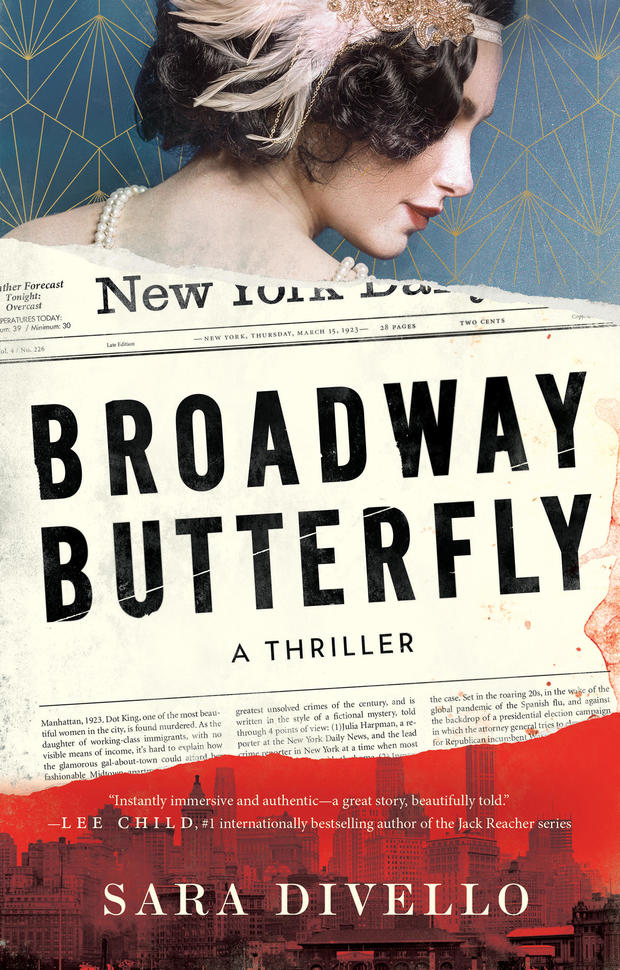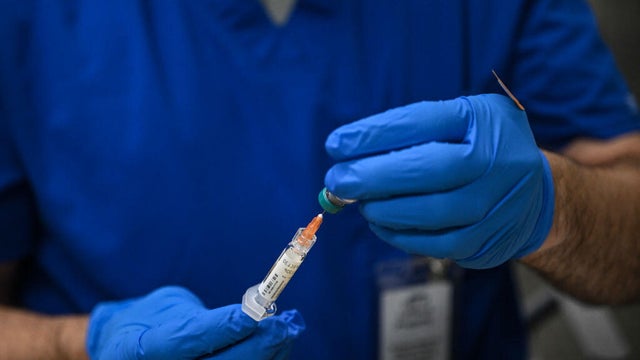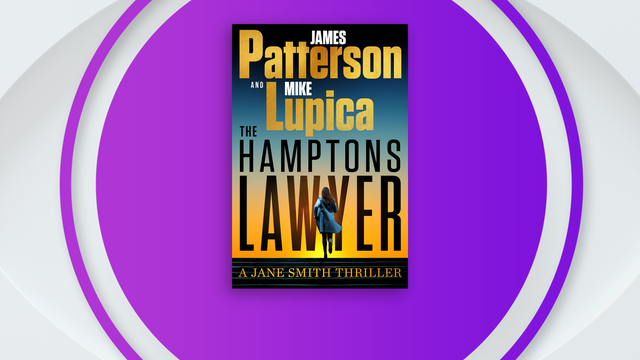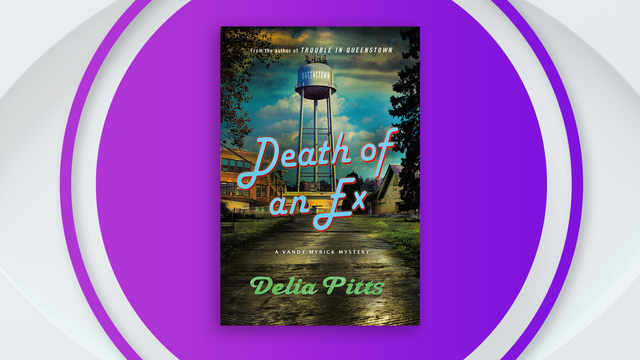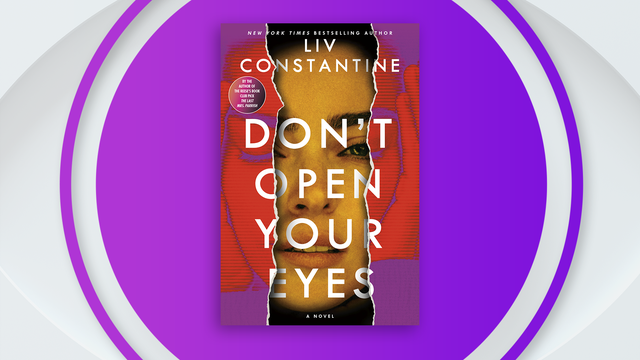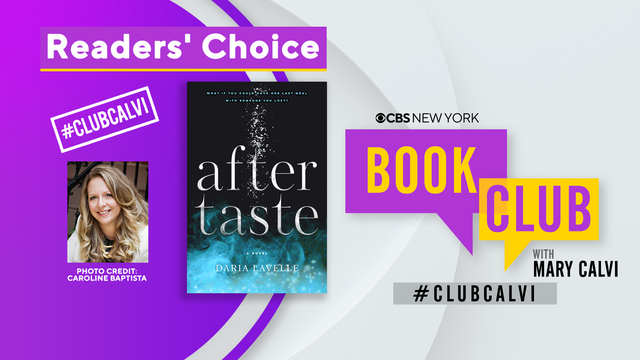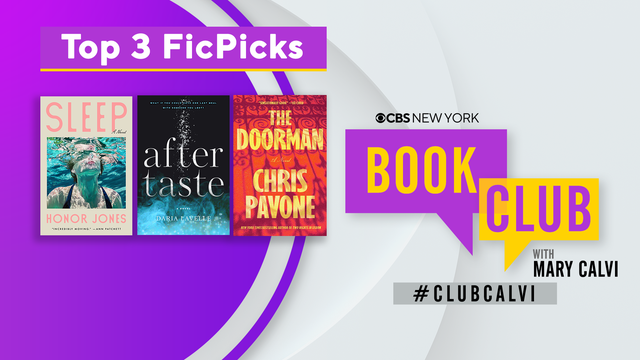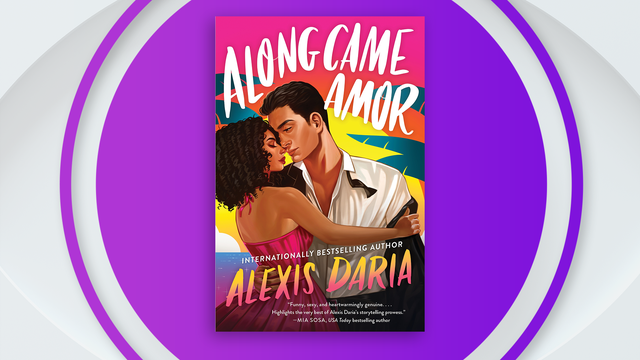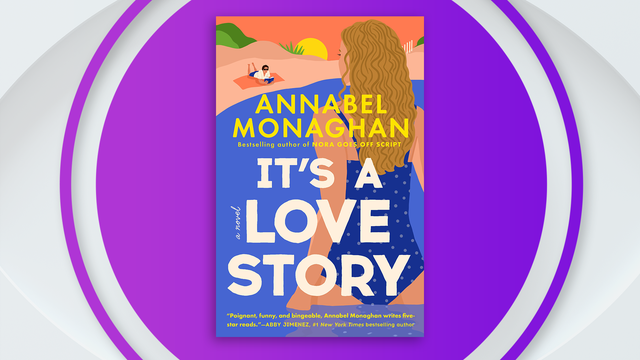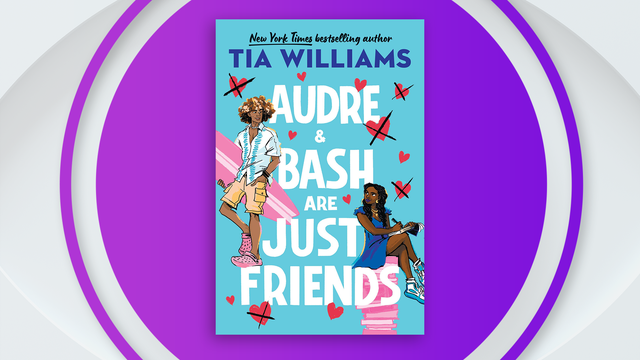CBS New York Book Club's 1st fall Readers' Choice revealed
Please consider joining our Facebook group by CLICKING HERE.
Find out more about the books below.
CBS New York readers have chosen their first book of the fall!
A record 10,000 votes were cast for our top three FicPicks this round.
You named "Broadway Butterfly" by Sara Divello as the next Readers' Choice.
It's based on a true crime -- a murder in the roaring 1920s that happened on West 57th Street, not far from the CBS Broadcast Center.
So get your copy and read along with our Book Club Facebook group, leading up to our Book Club show next month.
Click here to find out more about each of the FicPicks we considered this round.
Prefer to listen? Audible has a 30-day free trial available right now.
"Broadway Butterfly" by Sara DiVello
From the publisher: A true-crime novel based on one of the most notorious unsolved murders of the roaring twenties. Scandalous flapper Dot King is found dead in her Midtown Manhattan apartment, a bottle of chloroform beside her and a fortune in jewels missing. Dot's headline-making murder grips the city. It also draws a clutch of lovers, parasites, and justice seekers into one of the city's most mesmerizing mysteries.
Among them: Daily News crime reporter Julia Harpman, chasing the story while navigating a male-dominated industry; righteous NYPD detective John D. Coughlin, struggling against city corruption; and Ella Bradford, the victim's Harlem maid, closest confidante, and keeper of secrets. Adding fuel to the already volatile crime: a politically connected Philadelphia socialite, an Atlantic City bootlegger, Dot's dicey gigolo lover, a sultry Broadway dancer, and a cagey sugar daddy guarding secrets of his own.
Sara DiVello is the founder and host of the author interview series, Mystery and Thriller Mavens.
"Broadway Butterfly" by Sara DiVello (Hardcover) $19
"Broadway Butterfly" by Sara DiVello (Kindle) $5
Excerpt: "Broadway Butterfly" by Sara DiVello
9:15 p.m. 25 Park Place, Manhattan. New York Daily News.
Julia rushed back to the converted five-story warehouse that the New York Daily News called home, and the smell of ink, paper, and cigarette smoke greeted her. With its pale stone front, Italianate cornices, and ornate moldings above every window, the building looked much the same as any of the lofts around it. But inside, the floor vibrated as the printing machines in the basement hummed to life, ready to churn out copies of the nation's largest morning daily. It felt like home.
She ignored the archaic birdcage elevator and ran up the stairs to the second floor, which housed the editorial department. She waved to the bench of copy boys waiting to run stories up to the linotype operators, who would then cast lines of metal type in preparation for printing.
"Julia!" Hellinger waved as she hurried into the narrow, long room toward the far end that served as the city desk. "Julia! We got a hot one!"
She hung her coat on the nearest coat-tree, slid into her seat. "OK, shoot," she said, realizing belatedly it was a poor choice of words, having just come from a murder-by-shotgun trial. "What's the story with the model?"
He twirled his fedora on a finger. "She was known along the roaring forties as the 'Broadway Butterfly.'"
The hairs on the back of Julia's neck rose, tingling in the prescient way that heralded a big story. The Broadway Butterfly. It was a title that would immediately hook readers, not only conveying the effervescence of a social butterfly but also homing in on that section of the city as ablaze with electric lights as it was with its heady culture of glamour: Broadway. There was nothing else like it in the world.
"Did you hear I'd met her?" Hellinger asked.
"I did," Julia observed dryly. "It seems Manhattan is no match for you." Even in a city of
millions, it stood to reason that Hellinger had crossed paths with the dead model—he not only covered the theater beat but made it his business to know as many of the city's beauties as possible.
"I also finagled access to the crime scene, and it turns out, this was no suicide. A small fortune of jewelry is missing, and some weird chloroform bottle, in a size nobody's ever seen before, was found next to the body," Hellinger said, ignoring the gibe.
Julia's pen raced across the paper. "What do you know about the victim herself?"
Hellinger passed her a photograph. Like every paper, the News kept stacks of photos of everyone notable in the city. "I pulled this. As you can see, Dot King was a real doll, and quite the gal about town. She had at least two lovers—Guimares, this flashy gigolo, and an elderly sugar daddy who kept her decked out in jewels and furs."
Julia studied the picture of the beautiful model shrugging gracefully in a white fur coat: lips painted in an exaggerated bow shape, perfectly waved hair chopped into a bob, wrists and fingers bedecked with bracelets and rings. The girl stared, unsmiling, directly into the camera, which made it now seem she stared directly at Julia. Julia, who always felt awkward in front of any camera, looked away from the model's frank, unabashed gaze.
"I'd see her around at the swankiest cabarets, always dressed to the nines. And I heard when she had parties, the Brevoort sent each course by taxi plus a waiter to serve cocktails," Hellinger said, consulting his notes. "Seems she had no shortage of admirers. I also heard she could be melancholy. She started worrying about getting bumped off a few months ago. Got so nervous, she even had her will drawn up with a special clause about something 'unforeseen' happening to her. Poor kid."
"Yes, well, it seems the 'poor kid' was right. Maybe next time a woman says she's worried she's in danger, someone in her life will listen. You know, before it happens," Julia said more sharply than she meant to.
"Hey, I listen!" Hellinger protested.
Julia rolled her eyes. "Did you talk to Coughlin?"
"Figured I'd leave that to you," Hellinger said.
Julia nodded. Coughlin had been promoted to chief inspector shortly before she'd arrived in New York, making him the head of nearly every investigation she'd covered, and therefore her go-to source for updates and quotes. He was notoriously brusque but mostly decent to reporters. He seemed to understand that they, like him, had a job to do: he caught crooks and they reported on it. Over the years, they'd developed a mutual respect, which was the most that could be hoped for between policeman and reporter, and which had probably grown out of the fact that both of their jobs required long, strange hours and a level of dedication that bordered on obsession. But even considering that was the norm, they were outliers, working round the clock, the first to arrive and the last to leave, always pushing for more.
She appreciated that when he found his hands tied by city politics, Coughlin was known to let reporters "eavesdrop" on calls where he loudly repeated key information. Most of all, she appreciated that he accepted her as a newspaperman—same as all the rest, in spite of her gender. That was rare.
Julia stood. "OK, if we want to make the morning edition, we gotta work fast. Since Coughlin already arrested Guimares, go straight for Marshall."
Hellinger held up a finger. "Just one problem: nobody knows who he is. 'Marshall' is a
pseudonym."
Julia froze. A pseudonym-wielding mystery man was the sizzle that took a story from the crime beat to the front page, and the front page was the difference between cases that got solved and cases that fell by the wayside. It was also, a small, calculating voice within her whispered, the sizzle that kept her employed and could propel her to a promotion as an assistant editor. Her fate was aligned with a dead woman's; such was the singular life of a crime reporter.
Excerpt from BROADWAY BUTTERFLY by Sara DiVello. Text copyright © 2023 by Sara DiVello
